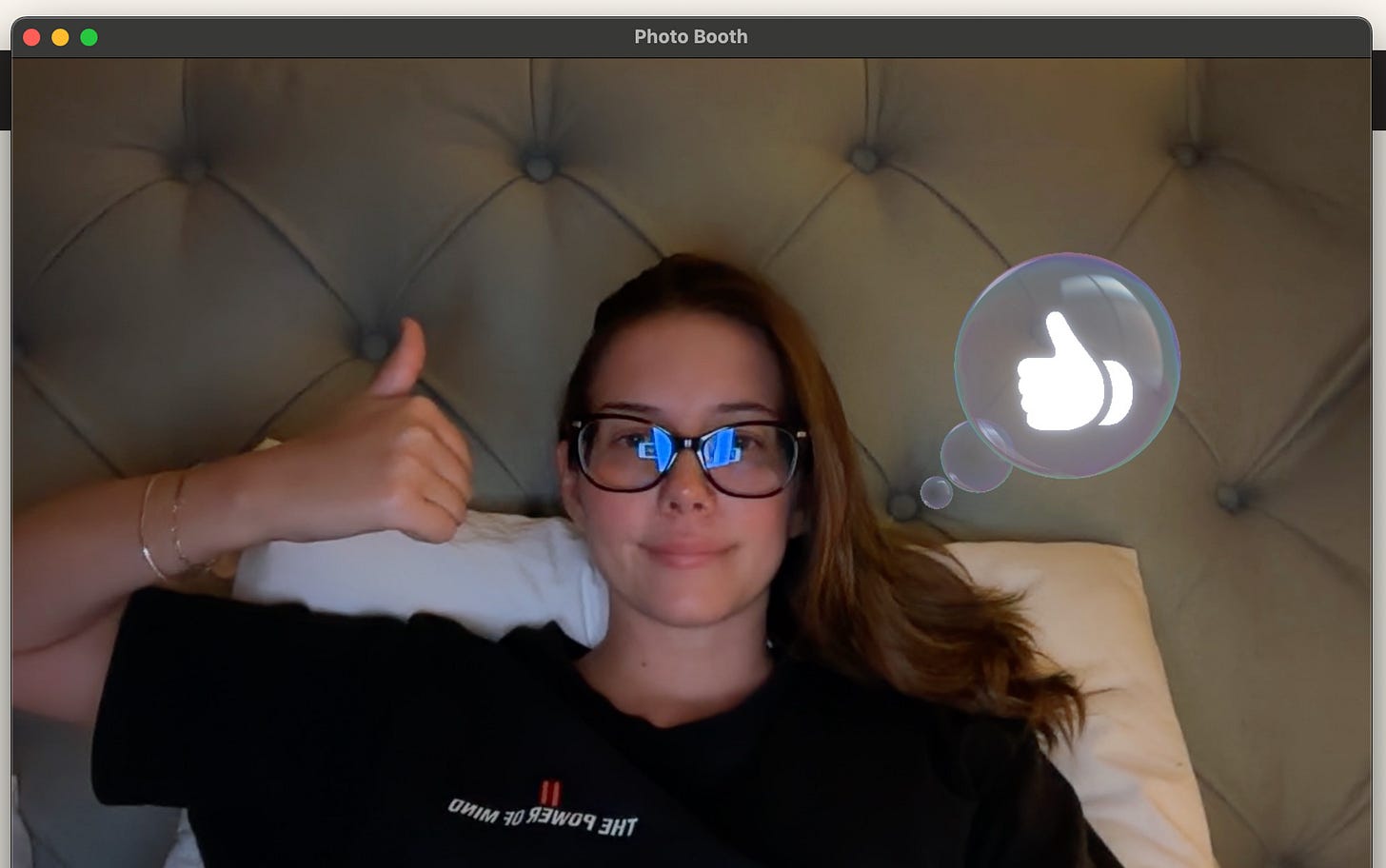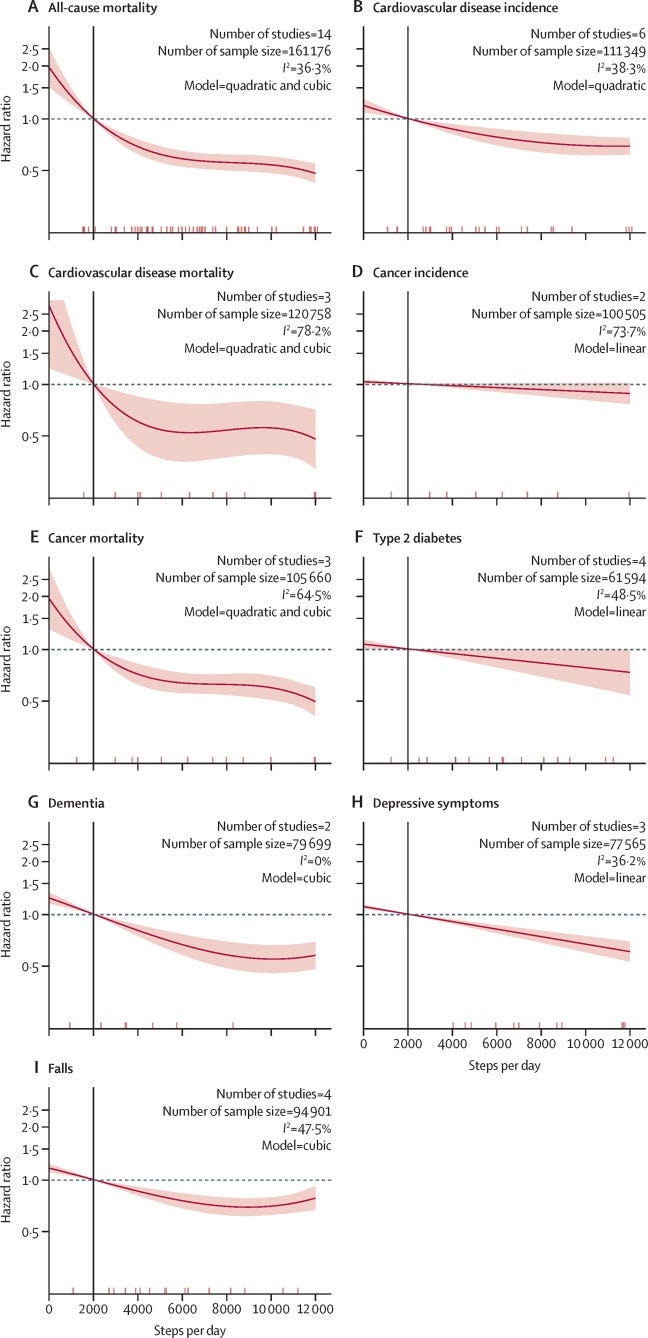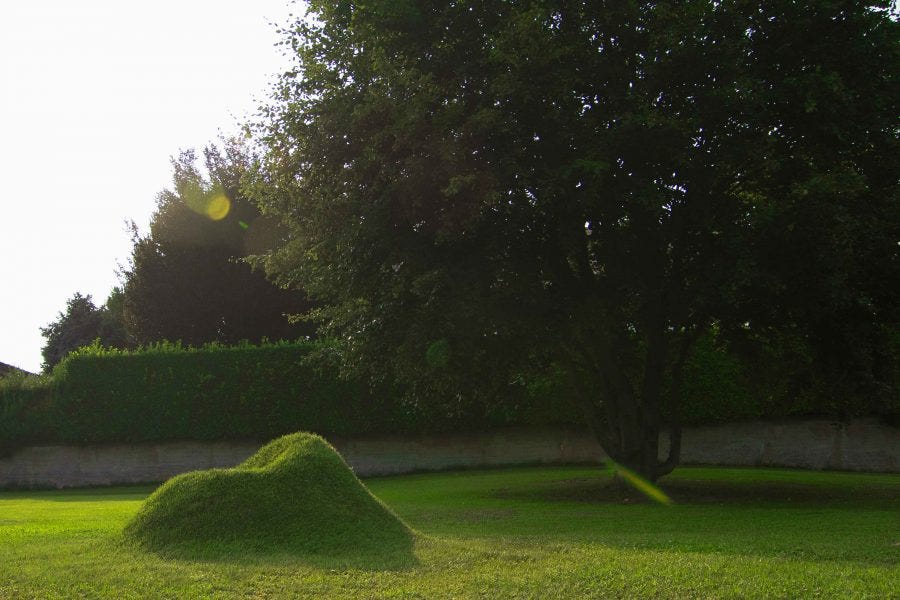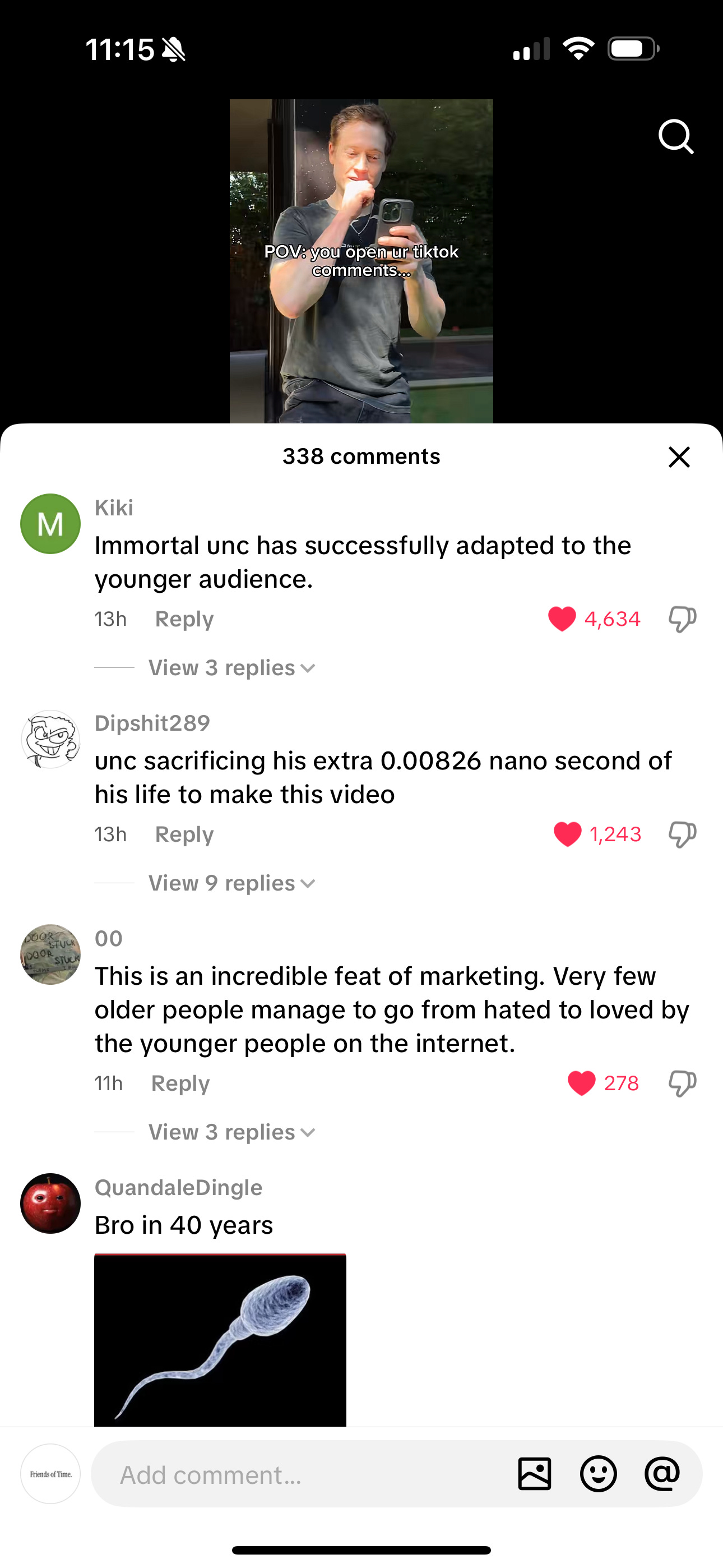Good evening everyone. HkLiving candle burning to my right. Sunset lamp to my left. Tim Marovt t-shirt on. Dog at my feet. I think this may be the perfect Sunday night… until further notice.
This week’s newsletter:
Ozempic makes you and your organs younger.
Depressive symptoms keep decreasing as you walk.
8 quotes that’ll make you immune to longevity scams. From The New Yorker’s scientific take-down of longevity biohackers. (paywall)
The Manopause is here. It’s fuelled by testosterone injections. (paywall)
News
Confirmed by clinical trial for the first time ever: age dropped by 3.1 years and organs got 5 years younger in all 84 Ozempic users in the trial. This makes semaglutide one of the most potent anti-aging meds on the market.
A few days ago Serena Williams announced she lost 14kg with the drug, partnering with Telehealth service Ro. Ro touts their products for ‘weight loss, better sex, fuller hair, improved skin and more, online’. Very Americano. The gravitas of Serena Williams has reopened a debate that few outlets were reporting: should GLP-1 drugs be banned for athletes? The original argument is that athletes can change their power-to-weight ratio which would be beneficial in sports like cycling, running and swimming. WSJ reported on it in July, stating potential performance-enhancing effects as well. And now that semaglutide has proven to help people age backwards, WADA surely must be watching closely?
The largest ‘how many steps a day’ study ever was done. 7000 steps is clinically beneficial. 4000 steps also had benefits. No significant benefits below that. Less than 2000 worsens your health.
Read this chart like a pro:
The impact of walking on mortality is more significant than it is on incidence. Walking thus makes a big impact on whether or not you die from a disease.
The effects of walking on depressive symptoms are linear. Benefits at 12K steps are even more impressive than at 7K. The more you walk, the less depressive symptoms you’ll experience.
The tipping point is not zero - it is 2000 steps. 2000 steps a day is the amount of steps you need to take in order to keep your health in “neutral”.
No matter how hard we try to secure our place at the top of the food chain – we’re still edible. Delicious piece written by Harvard Fellow Nicholas Low. Highly recommend a read and ponder.
Bryan Johnson is Gen Z’s new obsession, they call him ‘immortal unc’.
8 quotes from The New Yorker’s diss at longevity billionaires that will make you immune to longevity advertising:
“More than eighty per cent of animal-tested therapeutics fail in people.”
“Dr. Helen Messier, Fountain Life’s chief medical officer, told me, “I like to say about these men, ‘They spent their health getting their wealth, and now they have to spend their wealth getting their health back.’””
“Yet combinatorics often backfire: when young subjects took Vitamins C and E before strength training, it blunted many benefits of working out. There’s a pharmacological principle that when you combine three drugs you have no idea how they’re going to interact, as well as a hepatic principle that the more supplements you take, the more work your liver must do to detoxify them. (Many over-the-counter supplements are contaminated with fungus, mold, yeast, salmonella, and heavy metals.)”









